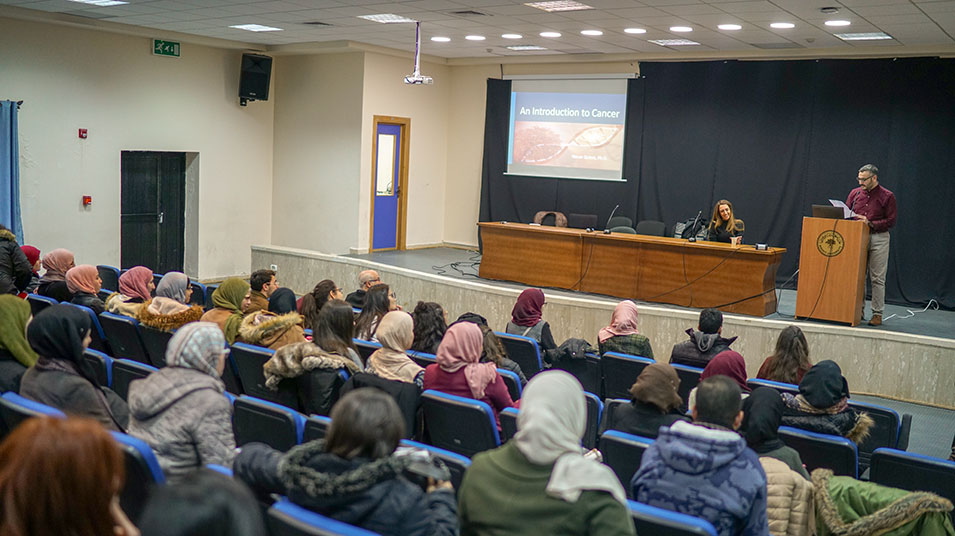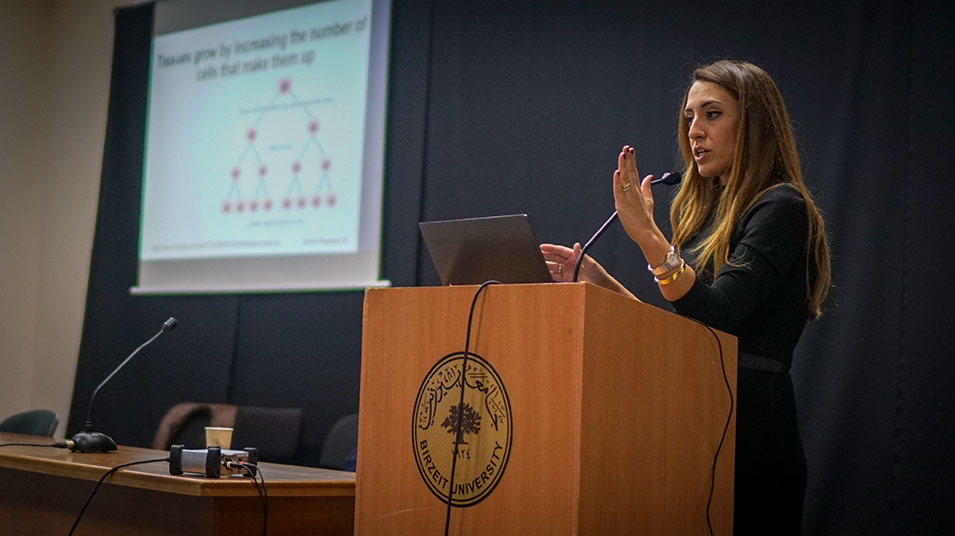Visiting professor discusses types and causes of cancer in student-organized lecture
More than 140 Birzeit University students, most of them biology and biochemistry majors, learned about the types, causes, and prevalence of cancer in a lecture presented by Nouar Qutob, an assistant professor of biology at the Arab American University and a cancer researcher, on Saturday, February 9, 2019.
In this lecture, organized by the student-led Biology Club and the Deanship of Student Affairs, Qutob introduced students to a selection of currently available information on the disease she defined as the “uncontrolled division of cells.”
Qutob pointed out that there are more than 200 types of cancer which can be classified into five categories: Carcinoma, cancer that starts in cells that make up the skin or the tissues that line organs; sarcoma, cancer that starts in the connective tissues; leukemia, which starts in the body's blood-forming tissues; lymphoma, cancer that starts in the lymphatic and immune system; and brain and spinal cord cancer.
The difference between normal cells and cancer cells, Qutob clarified, is that cancer cells don’t stop dividing. “Cancer cells ignore the chemical signals by which cells know when to stop dividing,” she said. “Due to the hasty and uncontrollable division, they are unable to repair their DNA or go through apoptosis − programmed cell death.”
Discussing the causes of cancer, Qutob noted that the disease is mainly triggered by mutations of cellular genes. These mutations can be inherited or somatic, and they can occur in tumor-suppressing genes, i.e. genes that repress cell division, or in oncogenes, i.e. genes that promote cell division.
Qutob closed her lecture by presenting international and local statistics that highlight the prevalence of cancer, revealing that the two most widespread types of cancer in the world are lung and breast cancer.
Inspired by this highly informative lecture, students requested that more such experts be hosted to discuss topics relevant to their majors.








